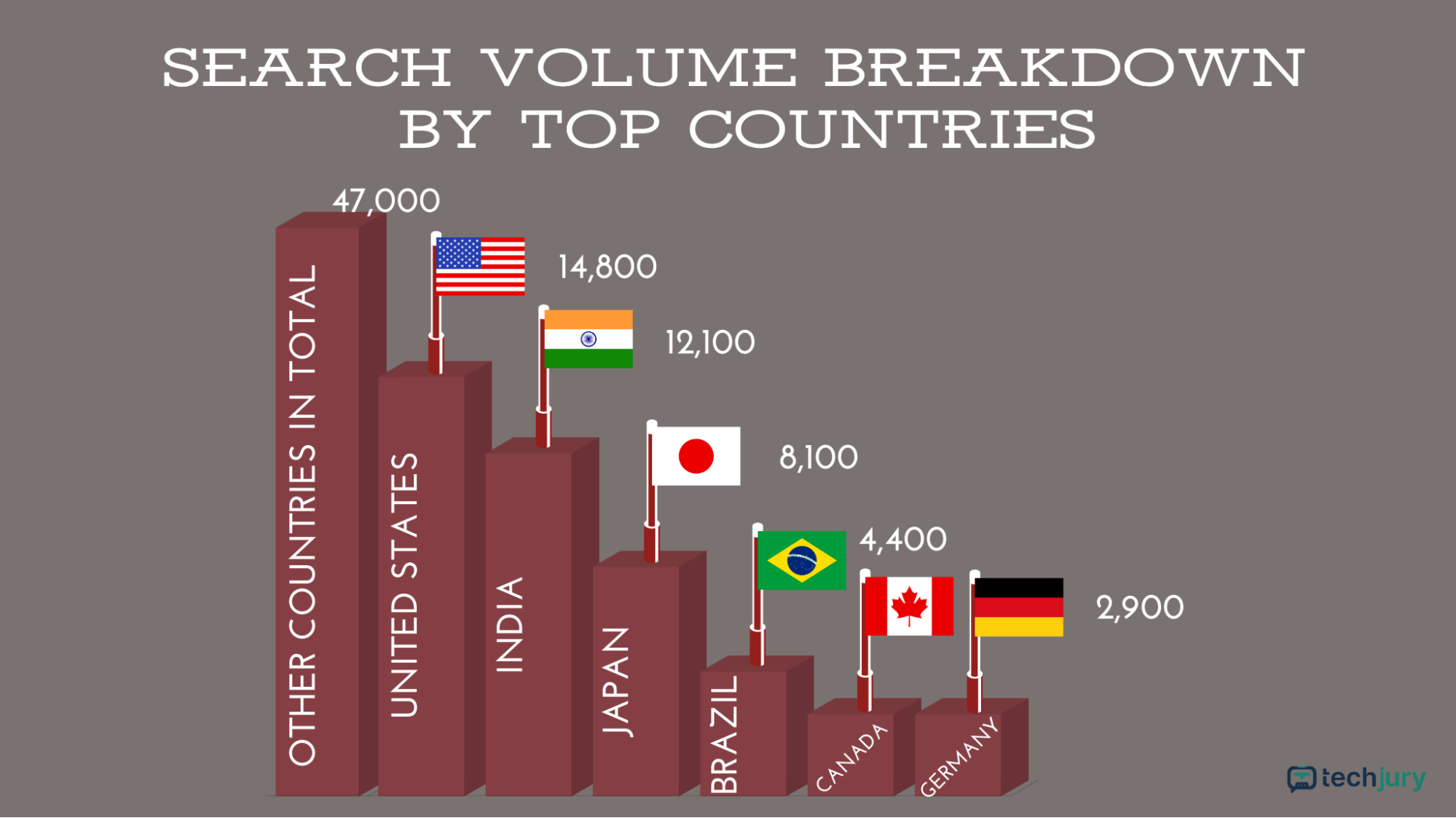

Updated · Jan 10, 2024
Updated · Aug 09, 2023
Darko founded WhatToBecome.com, a comprehensive career guidance platform for beginners in various po... | See full bio
Florence is a dedicated wordsmith on a mission to make technology-related topics easy-to-understand.... | See full bio
Did you know that around 60% of web developers use a framework like Ruby on Rails? It's no surprise because frameworks simplify web development with standardized guidelines, making the process smoother and faster!
If you're working on a simple site or software app, you might not need a framework, but Ruby on Rails can be a lifesaver for more complex projects.
Curious about the latest usage statistics and trends for Ruby on Rails? Let's study the most recent usage statistics and relevant data, such as demographics and trends.
Editor's Choice
|
Out of the roughly 200 million active websites, over 594,000 are currently using Ruby on Rails. This popular framework enables developers to create applications quickly and effortlessly, avoiding starting from scratch.
|
▶️ Watch:
|
Below are some helpful Ruby on Rails usage statistics. Continue reading to learn about the insights you need about this framework.
Developers prefer Ruby on Rails because it helps in the process, using less time and effort. If you want to use this framework, here are some helpful statistics:
(Built With)
Millions of websites prefer Ruby on Rails because it suits various applications. In total, 3,792,088 websites used this framework, including active ones.
Considering those using Ruby on Rails tokens, there are 2,743,790 and 1,886,816 more redirects. If you include the past users, 8,328,986 sites have benefited from it.
With this web framework, developers can create an app quickly. As a result, they enjoy better time management, happiness, and sustainable productivity. Thus, millions of websites have relied on and continue to rely on it in running their apps.
(Built With, w3techs, Statista)
Ruby on Rails is an open-source framework used by at least 5.3% of all websites. Moreover, Regarding usage, Ruby on Rails is the 15th most used framework, with a rating of 5.83%.
Here's a percentage of Ruby on Rails based on the top sites:
(Built With)
Ruby on Rails is one of the most popular server-side frameworks in at least five countries. Here's a list of the countries that hailed this framework as popular:

|
📒 Related Article: Explore web development and become skilled in key programming languages, frameworks, and tools for creating interactive and user-friendly websites. Here are some web development articles to check out: |
Ruby on Rails isn't in the top ranking. However, it's still considered the most popular in several countries. For web developers, Ruby on Rails remains a convenient and valuable framework.
(Ruby on Rails)
Since 2004, Ruby on Rails has received contributions from over 6,000 developers. With such efforts, this framework remains the best choice for developers.
As an open-source platform, you can find thousands of revisions, patches, and tickets in it. As a result, you can enjoy improvements and enhancements when using Ruby on Rails.
|
💡 Did You Know? Laravel gained popularity among developers for its excellent and convenient development experiences. Various industries, including technology, arts, and entertainment, widely use it. In 2023, around 44,323 companies adopted Laravel, including big names like Pfizer and BBC, relying on it for building websites and applications. |
(Similar Tech)
Even though Ruby on Rails has declined in usage, over 1,000 sites that receive high traffic still rely on it. Such sites are so extensive that they receive more than 100 million visits per month. Here are the top high-traffic sites powered by Ruby on Rails:

Demographic information can give insights if you wish to know more about Ruby on Rails. Here are some recent statistics on this framework's demographics.
(Github)
You'll find 2,029,973 users on GitHub's platform using Ruby on Rails. Moreover, there are 4,762 contributors on the same platform.
They all work together to provide a pool of sources for everyone using this framework. As a result, despite the decline in popularity, the usage of Ruby on Rails remains steady at high usage.
(Similar Tech)
As a framework, Ruby on Rails doesn't limit itself to websites. It finds games, entertainment, arts, science, and education applications. However, its most prominent usage is computers, electronics, and tech.
Here's a breakdown of all the popular uses of Ruby on Rails:
(Tiobe)
According to Tiobe Index for May 2023, Ruby programming language ranks 18th as the most popular. Against all other options, this language has a rating of around 0.80%.
The launch of other programming languages made this framework less famous. Nonetheless, it remains one of the most preferred frameworks. Further, it still belongs to the top languages used for web development.
|
🎉 Fun Fact: Most websites use programming languages, and PHP is the most common choice. People widely use PHP because it seamlessly integrates with HTML, despite the emergence of new languages. Web developers find it valuable for creating interactive content and communicating with the internet. Out of nearly 2 billion websites worldwide, over 33.7 million live websites use PHP, including more than 1.6 million additional redirects. |
(Stack Overflow)
A web development survey of 71,467 responses shows that 49.99% love Ruby on Rails while 50.01% dread it. Further, of all web developers who aren't using Ruby on Rails, only 2.66% are willing to learn more about it.
(StackOverflow)
Based on a developer survey, around 6.75% of developers use Ruby as a programming language. Moreover, 7.04% prefer using Rails, a web framework. It's lower than other programming languages and frameworks. Still, those who want to focus on conventions prefer it to configurations.
The usage trends will show you the potential of this framework by looking at past and current data. Here are some helpful trends related to this framework:
(Ruby on Rails, Computer.org)
Ruby on Rails launched first in August 2004. However, the framework gained widespread use in 2006.
During that year, Ruby on Rails had a significant effect on developers. MacOS X 10.5 (Leopard), Apple's operating system from August 2006, was built upon this framework.
(Semrush
The search term 'Ruby on Rails' gets around 92,000 monthly searches. It means that, around the world, this framework still earns the interest of many people.
Generally, the highest search volume for this framework is in the U.S. at around 14,800 searches per month. However, other popular countries search for Ruby on Rails at least 2,900 times monthly.
Here's a breakdown of the search volume from the top countries:
 Besides these thousands of searches for Ruby on Rails, other popular search terms are:
Besides these thousands of searches for Ruby on Rails, other popular search terms are:
Hundreds of people still want to know how to use this framework. Moreover, they are interested in hiring or applying for jobs related to it.
(Google Trends)
Google Trends has shown a steady interest in Ruby on Rails over the past 12 months, with an average score of 79%. The current interest score is 82%, 2% higher than last year.
The highest interest score for Ruby on Rails is from September 25 to October 1 at 100%. This topic had the lowest score of 57% from December 25 to 31 last year.
These numbers mean many users have searched for Ruby on Rails over the past year. With a steady interest score, you can expect this framework to remain on the trend in the future.
Ruby on Rails has made great strides as a framework launched in 2004 and peaked in 2006. This framework has unfortunately declined in popularity. Still, it holds fast with millions of users and thousands of contributors.
Many analysts say that Ruby on Rails is dying and becoming irrelevant. However, this framework's continuous usage, updates, and demand show otherwise.
|
❗ Remember: – Yukihiro Matsumoto, creator of Ruby |
Ruby on Rails uses Ruby, while Django uses Python. They are visually similar but differ in problem-solving approaches.
Choose based on your needs. Ruby is harder but good for web development, while Python is great for data science and beginners.
Ruby on Rails is for backend web applications. It's efficient and scalable, requiring fewer lines of code than Java or Node.js.
Your email address will not be published.
Updated · Jan 10, 2024
Updated · Jan 09, 2024
Updated · Jan 05, 2024
Updated · Jan 03, 2024




